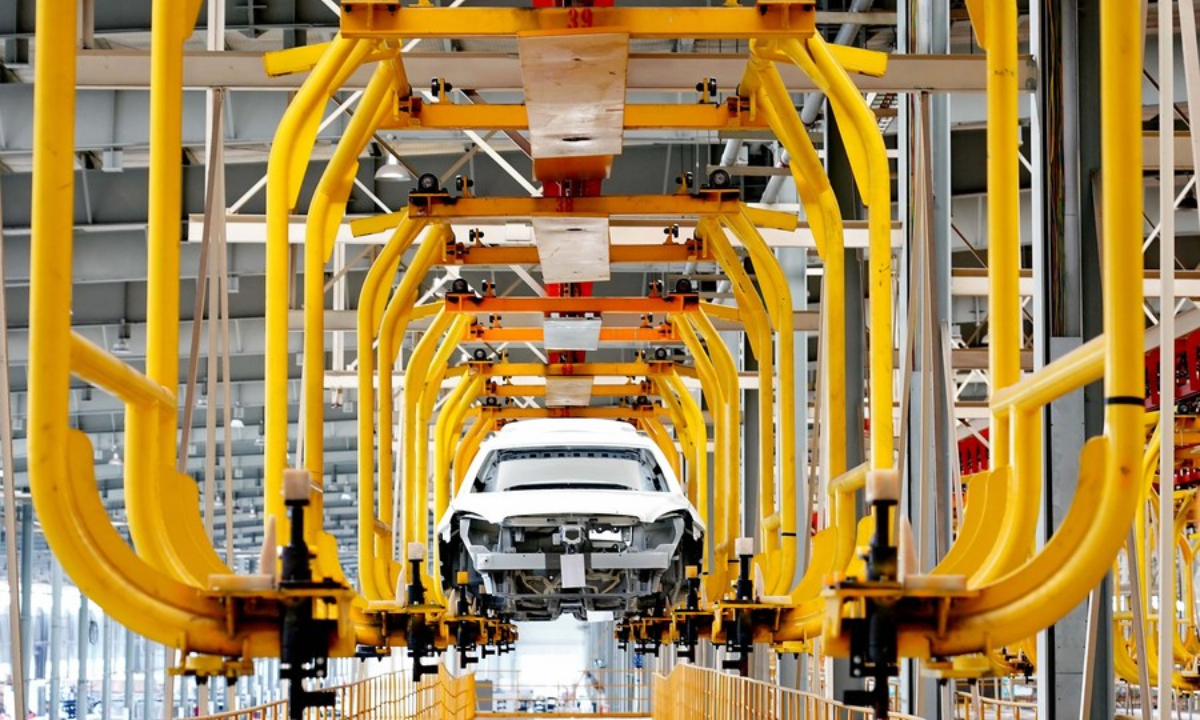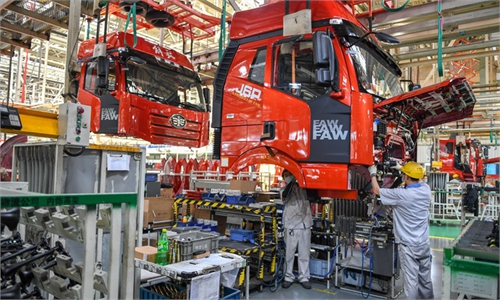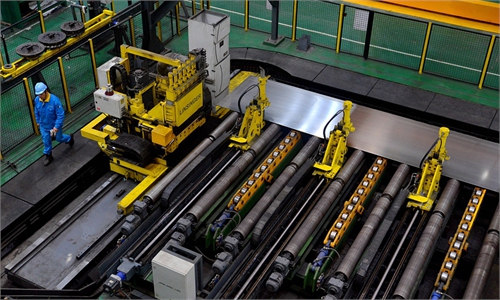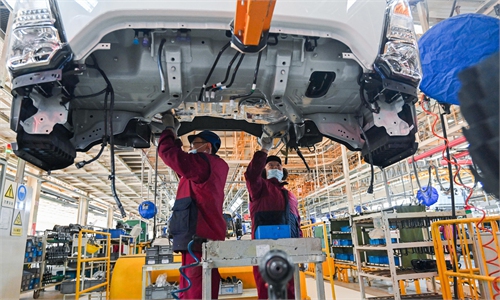
Photo:Xinhua
China's private Caixin Manufacturing Purchasing Managers' Index (PMI) stood at 50 in March, down from 51.6 in February, reflecting views and conditions among the country's small private-sector manufacturers.
The National Bureau of Statistics (NBS) announced the official PMI of 51.9 on Friday, a decline from 52.6 in February, which was the highest since May 2021.
"In March, influenced by factors such as the high base of the previous month, the manufacturing PMI fell. The prosperity level was still at its second-highest point for the past two years, and 13 of the 21 industries surveyed recorded a PMI higher than the previous month," NBS statistician Zhao Qinghe said.
In Caixin's survey, the manufacturing output index and new order index were both slightly over the critical point of 50 as the supply-demand balance was still being reached.
Cong Yi, a professor at the Tianjin University of Finance and Economics, told the Global Times on Monday that global headwinds resulting from turbulence in some major economies including the US and the EU affected China's exports and overall market expectations.
The interviewed enterprises said that the number of clients and their demand increased as COVID-19 response measures were downgraded in China, but low export demand dragged the new export order index into contraction territory, the Caixin survey showed.
The employment situation still has not fundamentally improved, with the related index falling below the critical point again in March. According to the survey, the decline in employment was mainly due to job vacancies not being filled after people left voluntarily, as well as companies cut costs.
However, Cong said that the overall economy has entered a recovery phase. "The effect of support policies is usually seen after about six months, and the market isn't worried about a one-month downtrend," he noted.
March's confidence index declined from February, when it hit a two-year high, but it remained above the long-term average.
Most interviewed enterprises said that operations are normal and will improve next year, based on improvements in demand, the number of clients and new products, Caixin's survey showed.
"Economic growth should depend on a boost in domestic consumption, especially personal consumption," said Wang Zhe, an analyst from Caixin,
The government's goal of expanding consumption can be realized by increasing employment, incomes and market expectations, said Wang.
Global Times



